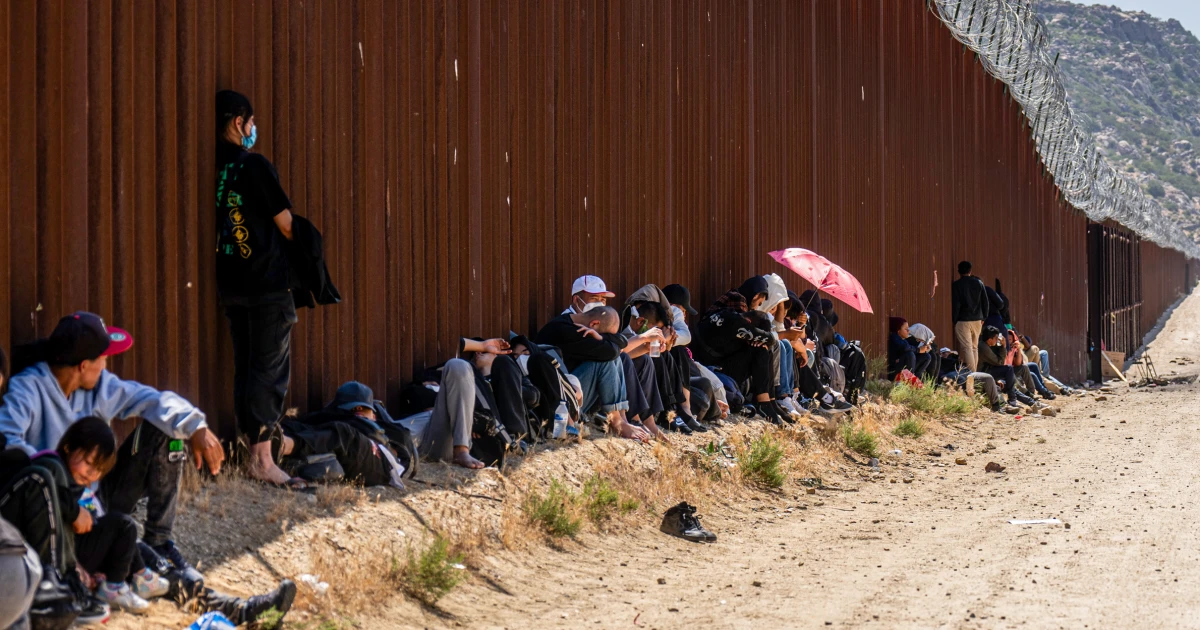The incoming Trump administration is preparing a list of countries to which it may deport migrants when their home countries refuse to accept them, according to three sources familiar with the plans.
The countries include but may not be limited to Turks and Caicos, the Bahamas, Panama and Grenada, the sources said.
The plans could mean that thousands, if not hundreds of thousands, of migrants would be permanently displaced in countries where they do not know any of the people or the language and have no connection to the culture.
It is not clear if the migrants would be allowed to legally remain to work and live in the countries to which they are deported. It is also not known what kind of pressure — either economic or diplomatic — the Trump transition is applying to countries to get them to agree, or might apply once President-elect Donald Trump is inaugurated in January.
In 2019, during Trump’s first term, he sent migrants to Guatemala as part of an agreement with that country to accept people from other countries seeking asylum in the United States. Under that policy, asylum-seekers who had recently crossed into the U.S. were put on a plane to Guatemala without knowing where they were going, according to reporting by NBC News and others at the time. The practice continued through early 2020, though on a relatively small scale, and was halted during the pandemic.
The American Civil Liberties Union and other pro-immigrant rights groups sued the Trump administration over the policy. That lawsuit is still pending in federal court.
“We sued over this type of policy during the first Trump administration because it was illegal and put asylum-seekers at grave risk,” Lee Gelernt, a lawyer with the ACLU’s national office, told NBC News.
Migrants who come from Venezuela, Cuba, China and other countries that are reluctant to accept back people who have emigrated to the United States have long posed an issue for U.S. authorities, who are barred by federal court orders from indefinitely detaining them. As a result, many migrants from those countries end up released into the United States, even if a judge has ordered them deported.
The plan to deport some migrants whose home countries are reluctant to accept them to third-party countries where they may have no connection would be a way for the new Trump administration to work around that issue as it creates what Trump has promised will be “the largest deportation operation in American history.”
Trump also wants Mexico to accept non-Mexicans who are deported from the United States, the three sources told NBC News. In addition to accepting migrants who may be turned back at the border, which Mexico has already been doing, the incoming administration is pressuring Mexico to accept deportation flights of non-Mexicans living inside the United States. The sources said that getting Mexico to agree may not be easy, and that Trump will use the threat of tariffs in an effort to compel Mexico to comply.
The sources also told NBC News the incoming administration has a goal of deporting migrants within a week of their arrest and believes this policy will help expedite deportations.
“President Trump was given a mandate by the American people to stop the invasion of illegal immigrants, secure the border, and deport dangerous criminals and terrorists that make our communities less safe. He will deliver,” Karoline Leavitt, a Trump-Vance transition spokeswoman, told NBC News when asked for a comment about the plans.
One source familiar with the plans told NBC News the Trump transition team has already reached out to Turks and Caicos, the Bahamas, Panama and Grenada to work out a deal under which they would agree to receive deportation flights from the U.S.
A spokeswoman for the government of Panama, Carmen Mora, said: “The Panamanian government does not respond to assumptions and rumors. We cannot not speculate in this regard. We prefer to engage with the new US administration once it takes office.”
Spokespeople for the governments of Turks and Caicos, the Bahamas, Granada and Mexico did not respond to requests for comment.
Laura Strickler contributed.



